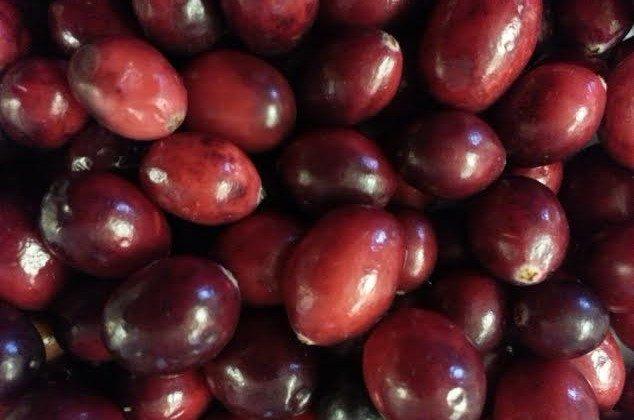Many of us likely enjoyed cranberry sauce with our turkey this Thanksgiving and probably will not eat cranberries until holiday time rolls around next year. Part of the reason may be that cranberry season is short and that we only find fresh cranberries in the stores from October to December. But, there are frozen options, especially organic cranberries, that contain the health benefits of the fresh berries. Fresh cranberries also can be stored year round.
According to the Cranberry Institute, cranberries contain polyphenols with anti-oxidant properties to neutralize free radical formation in the body. Free radicals formed under bodily stress actually can damage our cells, and lead to serious conditions over time, including heart disease and cancer. Anti-oxidants play another role in fighting some of bacteria that enters our body. While the body produces anti-oxidants naturally, under stress anti-oxidant production can be impaired.
Along with polyphenols, cranberries contain proanthocyanidins that have a special role in preventing some of the harmful bacteria we encounter from adhering onto our cell walls. One of the bacteria that it protects against is E-coli, which has been linked to urinary tract infections. Drinking 8 – 16 ounces of cranberry juice a day has been recommended to maintain the health of the urinary tract, including the prevention of urinary tract infections. I would opt for no more than a glass of juice a day to avoid excess sugar content.
One caution reported in some studies suggests a link between excess cranberry consumption and a compromising effects of warfarin, which some people take as a blood thinner. The results of these studies are inconclusive, but it is a potential risk to be aware of. If you are taking warfarin, it is best to consult with your physician.
In regard to storage, fresh cranberries can remain refrigerated for up to two months and frozen berries stored up to one year. In terms of cooking, cranberries are done when they make a popping sound. If they are otherwise overcooked, the berries lose their texture and taste bitter. With this bitter taste, it is very easy to add excess sugar or honey as sweeteners.
Many creative recipes using cranberries can be found on the Cranberry Institute web site. As a staple, I like to make a cranberry sauce sweetened with raw honey and flavored with some fresh orange juice and chopped walnuts, all to taste. The sauce can be used as a relish, spread on toast, or mixed with hot whole grains, such as oatmeal. Be mindful of portion control - a few tablespoons goes a long way and does not contain excess sugar or calories. Definitely visit the Cranberry Institute Web site for more ideas on ways to make cranberries a regular part of your diet.
Hoping that you all had a Happy Thanksgiving spent with family and friends!





